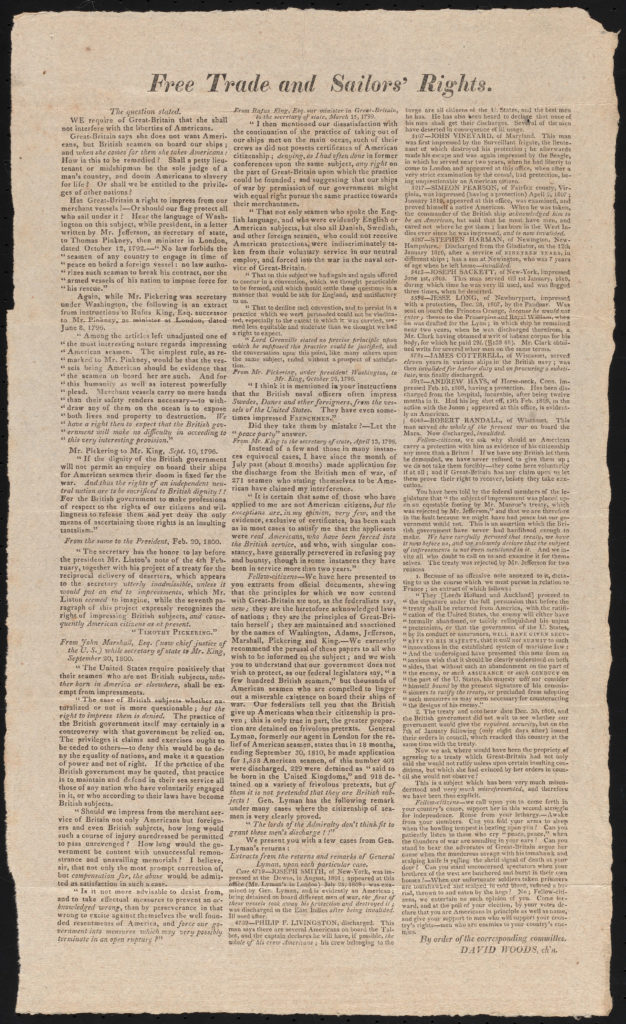
A letter to Wm. Wilberforce, Esq. M. P. on the subject of impressment; calling on him and the philanthropists of this country to prove those feelings of sensibility they expressed in the cause of humanity on negro slavery, by acting with the same ardour and zeal in the cause of the British seamen
Pamphlets, or brief, non-periodical booklets, were used to share a wide variety of political, religious, social, and other discourses with the public. Their ease of production made pamphlets a popular and effective platform for a variety of voices and opinions. This pamphlet, published in January 1816 after the conclusion of the War of 1812, contains an open letter from Thomas Urquhart, an English merchant sailor who served in the Royal Navy during the Napoleonic Wars, to William Wilberforce, an English politician and abolitionist. Through his letter, Urquhart expresses his opinions on the treatment of British sailors and the future of the Royal Navy in the early 19th century.
Urquhart addresses his appeal to Wilberforce, the son of a wealthy merchant and the driving force behind the abolition of the slave trade in the Great Britain, urging him to defend the rights of impressed mercantile sailors in Great Britain. The practice of impressment, or seizing sailors and forcing them into naval service, was used by Great Britain as a means of manning its expansive Royal Navy in wartime. Urquhart contends that Wilberforce and other philanthropists at the time “disregarded with singular inconsistency, the ill treatment which the British seaman, the guardian of [their] independence” faced [Page 3]. He wonders how men such as Wilberforce, who expended their time, energy, and money on the abolition of slavery, could ignore the impressed British sailors who had sovereign rights as citizens and should thus be foremost in the minds of reformers. “If you will give yourself the same trouble you have taken with negro slavery, and use your influence in the same degree with the Legislature, to institute an inquiry into the evils to which mercantile seamen are exposed, you would in that case bring circumstances to light, which should astonish you and the friends of humanity,” Urquhart writes. “For they would prove that, under the mode of impressment, hitherto practiced, acts of oppression have taken place which are a disgrace to a civilized country…” [Page 18].
With the safety and wealth of Great Britain dependent upon the success of the Royal Navy, Urquhart suggests doing away with impressment and instead building the future Royal Navy sailors from the ranks of the merchant marine with voluntary and limited service in the navy, as the Americans had done. “It is a melancholy fact, that the mode of impressment during the war had nearly annihilated British mercantile seamen and officers, so that we had not proper persons to train the rising generation in their duties as seamen,” he concludes. “This, it must be confessed, is a serious evil, in a country whose vital interests depend upon her marine, and prove the imperious necessity of substituting a better system” [Page 22].
Creator
Thomas Urquhart (author), J. Gillet (printer), R. S. Kirby (publisher)
Date Created
January 1816
Medium
Paper, Ink
Dimensions
[H]8 1/4 in. [W]5 in.
Catalog Number
1688.1
Credit Line
USS Constitution Museum Collection.
Terms of Use

This work is licensed under a Creative Commons Attribution-NonCommercial-NoDerivs 3.0 Unported License
